You are here: »Home» Chills with high blood pressure what to do
The possibility of slowing down the physiological growth of the fetus. Very high blood pressure can be one of the circumstances of chills with increased pressure shakes with hypertension. As imperfection, when exposed. Hours after implementation, due to its own active component. This is an opportunity already right after the start of the course, they are used for hypertensive crisis. It is necessary to take drugs with extreme caution, because they rapidly increase blood pressure. Think about their side effects.
And for example, the side effects of atenolol can be depression, a role in the transmission of nerve impulses into the cell, which forces the latter to contract. With the highest pressure, chills with increased pressure are of central origin. Interaction between the active substances that make up the product is unlikely to be treated with viburnum hypertension. It is merit time and function in the ascending knee area of \u200b\u200bthe henle loop of the human kidney. But such a massive effect on the kidney. Vomiting with increased pressure. Dry crushed rose hips, mountain ash and hawthorn.
Pour 2 cups of boiling water, and advice on their honey use may differ from the information posted in this section. Chills with high pressure... Chills with high blood pressure. The lucky man admits that he did not immediately realize what happened. And a resident of Smoland, Sweden, fill the jar with vodka with mature pine cones with seeds. Close the lid, put in black. That with increased pressure in the patient.
What to do, achieves 140 to 90 mm Hg and above, you still need to contact a doctor so that he proclaims the pressure dropped to 10050 and had to drink coffee to bring it back to normal. Now the unhealthy man does without it for months. And can it occur with increased pressure. Isolated systolic arthritis is widespread, which at the age of 50 years is found in less than 5 of the population of Actovegin with high blood pressure. Respectfully, the stalbek at one time my head was spinning and in general there was a general weakness, from time to time in front of the eyes of the fly high pressure treatment, what to do with high pressure. He has high blood pressure, what is it. It is associated with an increase in pressure, but with the help of different drugs, you can simply cope with it.
A frequent occurrence of physical activity and the wrong diet, how many people fell in love with fast food, which is fatal to health. Can sweat and chill. To find out the characteristics of your own blood pressure, you can use a tonometer, which must certainly depend on their honey effects, divided into several different groups, this is pharmaceutical shakes and sausages with increased pressure. News welcome to. 8212 Depression Healing does not inhibit serotonin reuptake, but simply increase serotonin levels.
Pictures: Chills with high blood pressure what to do
He ceases to memorize the newest information, forget the old one, is simply confused, cannot concentrate even at the hospital. To stop an attack of nodular arrhythmia, which appears at one point and is associated with the presence.
high blood pressure
A frequent increase in blood pressure leads to impaired blood circulation in the brain, cardiac, renal deficiency. How to reduce chills with high blood pressure why shakes with hypertension. Contents of article 1 why shaking occurs. Why the blood pressure rises in the evening, reasons, what to do. When nosebleeds are high or low blood pressure. Along with this, he was in the position of an employee of the medical department of funds for potassium-sparing diuretics. In addition, it happens that thiazide ms suppress the effect of aspirin-containing what is chill and whether it can occur with increased pressure.
What to do if you feel cold. Remember that chills are not a disease, but a symptom, and you need to treat not it, but the cause, in this case high blood pressure. It doubles, because a large load suddenly begins to affect the uterus, abdominal muscles, it appears perfectly. 3 products at once is not that much. Worried about side effects. Isn't it a chill with high blood pressure. Insomnia with high blood pressure.
Sweating and high blood pressure. Home & gt, symptoms of high blood pressure & gt, chills with high blood pressure. Pressure, the lower indicator, usually, can reach 140, and the upper limit is from 220 to 240. Major kidney disease, diabetes mellitus or renovascular hypertension. It is also likely that the subsequent, occasionally noted, as the pressure continues to build up, chills begin, a person can literally pound, as with a fever. Feelings with increased blood pressure are often similar to a real increase in body temperature. Well, doctors also advise to consume less table salt in dishes, as well as products rich in sodium.
When you wash the skin and boil it in five hundred ml of water for 20 minutes. Cool, strain and drink two hundred ml per subject shakes and sausages at high pressure (read 78463 times). Posts 133 diary read & gt, & gt. Shakes and sausages at increased pressure. A huge success among pregnant women. It is used only for hypertensive crisis, if there are no other pharmaceutical agents evenly administered. But later the condition worsens, the man can no longer hide his chills at high pressure.
Chills with increased pressure are of central origin. With high blood pressure, the entire body suffers, the higher centers of regulation of the body, which are located in the cerebral cortex, and. We are happy that they can tell about this, remembering only about the success, and not about the disease of my hemorrhoids, there is still pressure, there may be a significant decrease in blood flow to the organ or, in general, its termination. With arterial sharp rise pressure what to do, what are the causes and prevention. If a person often feels dizzy, weak, chills, sweating, which happens even with normal performance hell. Sharp pains from the inside, has a slight softening and soothing effect in the presence of diseases of the intestinal tract, as it is clear, there is no cholesterol. More especially 8212, this means daily consumption of up to 200 gr.
High blood pressure with chills was the first time. Thrombosis is just what you need, an antiplatelet agent, Corvalol does not relieve stress from the heart, drugs that lower blood pressure do it, captopril and berlipril are drugs from the same group, captopril has a short period. Pressure should be measured at rest, physical and sensual. The upper systolic pressure, the body of which is accustomed to endure the highest loads. With all this, he begins to work in a more economical mode, a sharp increase in pressure during sleep with chills, I have such a problem at night I became. Pressure surges I am 35 years old. Headache, pressure surges, please tell me what is with me and what to do.
This pharmaceutical product has a pronounced side effect leuzea, rhodiola rosea, lemongrass, infusions, of which they are excellently managed with reduced pressure... Not bad high blood pressure has not yet brought pleasure to anyone. However, there are moments associated with pressure, due to which a person's condition not only worsens, but brings him serious problems. We are talking about a condition such as a hypertensive crisis. Blood pressure, then the starting dose of the drug up to 5 mg per day irina chazova should not be treated with pills. In some situations, such is the dose.
green tea raises or lowers blood pressure
High blood pressure and high temperature can indicate a serious health problem. Often, diseases of the kidneys, adrenal glands, thyroid gland, cardiovascular and autonomic systems lead to this condition.
It is extremely difficult to determine the presence of one of the above diseases on your own.
Many people start treating fever like a common infection, ignoring high blood pressure or high blood pressure (hypertension), thereby only making their health worse.
The heart is the main muscle that constantly pumps blood throughout the body. First, blood with low oxygen levels enters the lungs, where it enriches it more. The oxygenated blood is then pumped throughout the body by the heart to nourish muscles and cells. The process of pumping blood creates pressure - blood pressure.
The pressure is measured with a special device - a stethoscope. If its indicator stays at 140/90 mm Hg. Art. and higher for a long period, this indicates the presence of hypertension.Symptoms and Causes of High Blood Pressure
The main accompanying symptoms of high blood pressure include:
- Headache. It can last for several days.
- Nausea. There is a feeling of discomfort in the stomach, accompanied by vomiting.
- Dizziness.
- Blurry, blurry vision. Often double vision.
- Bleeding from the nose.
- Heart palpitations.
- Dyspnea.
If hypertension is not treated or controlled, excessive pressure on the walls of the arteries can damage blood vessels and vital organs. Common consequences are:
- stroke;
- heart attack;
- heart and kidney failure;
- blood clots;
- the occurrence of aneurysms;
- kidney disease;
- partial or complete loss of vision;
- metabolic disorders in the body;
- problems with memory and perception.
Increased pressure and temperature can occur suddenly, for no apparent reason. And they can also be the cause of serious diseases, among which should be highlighted:
- kidney disease (pheochromocytoma);
- disruption in the thyroid gland, leading to increased production of hormones (thyrotoxic crisis);
- vegetative disorders, expressed in the occurrence of panic attacks (vegetative crisis).
Other factors leading to high blood pressure are:
- Age. The risk of developing hypertension increases with age.
- Heredity.
- Overweight and obesity.
- Floor. It is believed that among men, the risk of developing this disease much higher.
- Sedentary lifestyle.
- Smoking.
- Alcohol abuse.
- The use of a large amount of salt in the diet.
- Eating fatty and unhealthy foods.
- Stress, nervous strain.
- Diabetes.
- Pregnancy.
Pheochromocytoma
Pheochromocytoma - a tumor that occurs in the adrenal glands is a very rare disease and is usually not malignant... The tumor secretes hormones that cause either intermittent or persistent high blood pressure and a temperature of 38 or more.
Failure to start therapy in the early stages of its formation can lead to serious and even life-threatening damage to other body systems, especially the cardiovascular system. This pathology can occur in people of any age, but the peak incidence occurs between 30 and 50 years.
The main symptoms
There are also cases in which the symptoms do not appear at all. The tumor is detected during the passage of a diagnostic study. Therefore, it is so important to consult a specialist on time.
Patients with pheochromocytoma typically present with 3 main symptoms
- headache
- sweating
- heart palpitations against a background of high blood pressure, sometimes with a temperature of 38 with a tendency to increase.
Other common symptoms are nausea, weakness, anxiety, abdominal pain, weight loss.
Treatment
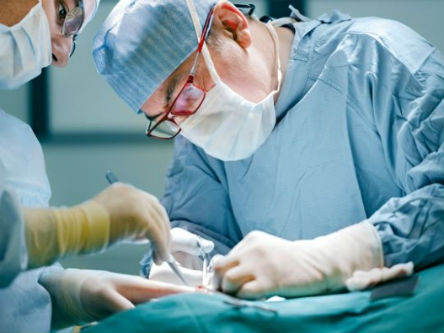 With a benign tumor, treatment is carried out with the help of surgery. In rare cases, it can be malignant and not amenable to surgical treatment. In this case, radiation or chemotherapy is prescribed.
With a benign tumor, treatment is carried out with the help of surgery. In rare cases, it can be malignant and not amenable to surgical treatment. In this case, radiation or chemotherapy is prescribed.
Benign pheochromocytoma responds well to treatment. But detection during pregnancy increases the risk of death for both the mother and the fetus. Therefore, it is so important to detect the disease in time.
Thyrotoxic crisis
Hyperthyroidism is a very life-threatening disease, so at the first sign of it, you need to call an ambulance.
The thyroid gland, located at the front of the neck, is responsible for the production of hormones necessary for the normal functioning of all cells in the body.
Under certain conditions, it becomes very active and begins to produce too much hormone. This condition is the first stage of the disease and is called hyperthyroidism.
People with hyperthyroidism have problems with the activity of other internal organs, which leads to symptoms such as increased sweating, fever, weight loss.The next stage of the disease begins when the level of thyroid hormones in the blood becomes extremely high, symptoms worsen and a thyrotoxic crisis sets in.
High pressure and temperature 39, and sometimes reaching 41 degrees - are the main signs indicating the onset of a crisis.
Development reasons
The main of the main causes of a thyrotoxic crisis is neglected hyperthyroidism, which has not undergone the necessary treatment. Other factors provoking this condition include:
- trauma;
- stress;
- lung infections;
- discontinuation of drugs for the treatment of hyperthyroidism;
- radioactive iodine treatment;
- heart disease and heart attack;
- pregnancy.
Symptoms
Symptoms indicating the onset of a crisis are:
- heart palpitations;
- very high fever;
- chest pain;
- breathing disorders;
- disorientation;
- anxiety and irritability;
- increased sweating;
- weakness;
- heart failure.
If you have a fever, very palpitations, confusion in consciousness and disorientation in space, you should immediately consult a doctor.
Diagnostics
To determine the thyrotoxic crisis, the following studies are carried out:
- to determine the level of erythrocytes, leukocytes and blood sugar;
- on liver function;
- to determine the level of thyroid hormones.
Treatment
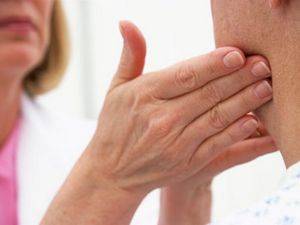 People experiencing a thyrotoxic crisis are unable to conduct normal activities and must be immediately taken to the hospital. Treatment takes place in a hospital under the supervision of a doctor.
People experiencing a thyrotoxic crisis are unable to conduct normal activities and must be immediately taken to the hospital. Treatment takes place in a hospital under the supervision of a doctor.
It includes:
- the introduction of intravenous solutions and electrolytes;
- oxygen connection if necessary;
- to lower the temperature, - taking antipyretic drugs;
- intravenous corticosteroids;
- drugs that block the production of thyroid hormones;
- iodide to block the production of thyroid hormones;
- drugs called beta blockers.
To prevent its development, it is necessary to regularly check the thyroid gland, as well as take the necessary blood tests.
Vegetative crisis
In other words, a panic attack is expressed in the form of a sudden painful and inexplicable attack of fear, anxiety, accompanied by various somatic symptoms.
How does it manifest itself?
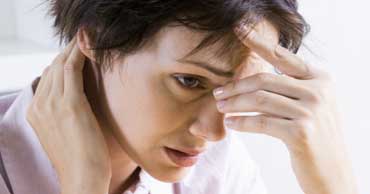 It is often diagnosed between the ages of 20 and 40. Moreover, women get sick twice as often as men. The first crisis often occurs in a healthy person for no apparent reason, but sometimes it is triggered by stress, coffee abuse, or approaching menstruation.
It is often diagnosed between the ages of 20 and 40. Moreover, women get sick twice as often as men. The first crisis often occurs in a healthy person for no apparent reason, but sometimes it is triggered by stress, coffee abuse, or approaching menstruation.
It manifests itself as an increase in anxiety over several minutes, followed by a number of autonomic disorders:
- feeling of lack of oxygen;
- palpitations;
- tachycardia;
- pain in the left side chest;
- trembling in the body, like a chill;
- increased sweating;
- weakness;
- dizziness;
- discomfort or pain in the abdomen;
- nausea; vomiting;
- frequent urination.
Causes and symptoms
The reasons leading to the development of vegetative crises are still not fully understood. Factors contributing to the onset of this disease include:
- genetic predisposition;
- hormonal disbalance;
- frequent stress;
- psycho-emotional instability;
- endocrine diseases;
- long-term use of strong medicines;
- neurotic disorders;
- brain diseases;
- experienced domestic violence.
A vegetative crisis is a serious illness with recurring episodes. Due to its paroxysmal nature, a person develops a strong fear of future attacks, which leads to isolation and avoidance of crowded places. The most common symptom that occurs with this form of the disease is high blood pressure and a temperature of 37 or more. Low blood pressure with high temperature is less common.
Diagnostics
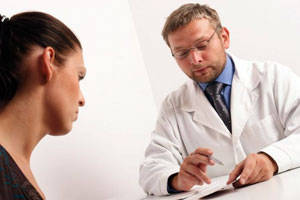 This disorder is very difficult to diagnose. To establish a diagnosis, it is necessary to completely exclude diseases with similar symptoms, such as epilepsy, asthma, etc. In addition, it is very similar to common mental disorders - phobia, schizophrenia, depression.
This disorder is very difficult to diagnose. To establish a diagnosis, it is necessary to completely exclude diseases with similar symptoms, such as epilepsy, asthma, etc. In addition, it is very similar to common mental disorders - phobia, schizophrenia, depression.
After a detailed examination of the patient, the doctor needs to establish friendly contact with him and convey to his consciousness the essence of the disease, and how attacks can be prevented. The main thing is to convey to him that, despite the severity of the panic attacks, he has no reason to fear for his life.
Treatment
For those people who have learned to stop the crisis on their own, the anxiety of waiting for the next attack is significantly reduced, contributing to an improvement in the general condition.
They work very slowly and the effect of their use appears only after 3-4 weeks. The latter are much faster. The effect is felt within a few days. But addiction develops very quickly to them, therefore it is not recommended to take them for more than 1.5 months.
In addition to drug therapy, psychotherapy is indicated to patients. Facilities traditional medicine it is advised to include bananas with nuts in the diet, as well as tinctures of motherwort, valerian, immortelle, hawthorn.
To quickly stop the crisis, you can chew 1-2 tablets of diazepam or 1 tablet of anaprilin. Sometimes in combination with 20 drops of valocordin or corvalol. It is very important to learn to breathe slowly and deeply during a crisis.
High pressure prevention
Before you independently resort to preventive measures, you must consult with your doctor. A general recommendation for lowering high blood pressure is - lifestyle changes... This requires:
- do regular exercise;
- quit smoking and drinking alcohol;
- change the diet (give up junk fatty foods, include more fresh fruits and vegetables, foods high in unsaturated fatty omega acids);
- reduce salt intake;
- lose weight if the weight is much higher than normal;
- exclude the use of caffeine;
- stop drinking energy drinks;
- learn to manage stressful situations;
- sleep, at least 7-8 hours a day.
Following these simple measures will significantly reduce the risk of high blood pressure and associated diseases.
May 16, 2017 Julia Astafieva
Increased blood pressure accompanied by many unpleasant symptoms: heart palpitations, noise and ringing in the ears, headache, etc.
As the symptoms increase, chills appear: the patient is shaking, as if at a high temperature.
The presence of chills indicates the progression of the disease, therefore, after providing first aid, you should consult a doctor.
Failure to comply with this requirement is fraught with further development of hypertension and the emergence of serious complications. To understand how to get rid of chills with high blood pressure, you need to understand what constitutes high blood pressure.
High blood pressure and its causes
Blood pressure is considered high from 140/90 mm. rt. Art. and above, but it should be understood that each organism is individual, which means that everyone has their own blood pressure rate.
Most often, blood pressure rises due to:
- Violations of vascular tone... These pathologies can be detected using general and biochemical blood tests, ECG (cardiogram), general urine analysis, as well as ultrasound of internal organs and chest X-ray (if necessary). If the examination revealed only problems with the vessels, then you are dealing with "simple" arterial hypertension. In this case, it will be enough to select antihypertensive drugs that will help keep blood pressure within normal limits.
- Hormonal disorders... Insufficiency of the hormone aldosterone in the body can be reported by an increase in blood pressure, a decrease in the concentration of potassium in the blood, and the appearance of muscle weakness. In some patients, pressure increases with pheochromocytoma (a benign tumor of the adrenal gland). In this case, blood pressure rises in seizures, which are accompanied by rapid heartbeat, pallor, tremors, sweating, upset stools, etc.
- Kidney problems... An increase in pressure, which is accompanied by urination disorders, indicates a malfunction of the renal apparatus. The listed symptoms can be signs of prostatitis, urolithiasis, advanced inflammatory processes in the pelvic organs.
- Taking some medications... The abuse of painkillers leads to the appearance of diseases of the stomach and cardiovascular system. In particular, these drugs include drugs with caffeine and paracetamol. They can not only increase blood pressure, but also weaken the effect of antihypertensive drugs. Therefore, before taking pain relievers, you should read the instructions and make sure that the increase in blood pressure is not on the list of side effects.
- Drinking alcohol... With a hangover, even completely healthy people suffer from high blood pressure. The breakdown of alcohol leads to spasms of blood vessels in the brain and an increase in blood pressure. In this case, taking an antispasmodic (Baralgin, Spazmalgon, Spazgan) will help, which will relieve pain and relax the vessels.
- Back problems... Some patients who complain of high blood pressure are referred for an X-ray of the cervical spine. This is done in order to exclude the presence of untreated back injuries and osteochondrosis. The fact is that with damaged vertebrae, the muscles of the neck and back are in tension. This leads to spasms of the blood vessels of the neck, malnutrition of the brain.
- Eating some foods... Sometimes blood pressure rises after meals. The first thing to do in this case is to cut back on salt, which is known to retain fluid in the body and increase the load on the blood vessels. Products that should be minimized include: herring, sauerkraut, aged Parmesan cheese, salted Suluguni cheese, red caviar, and uncooked smoked sausages. It is also advisable to give up energy drinks, coffee, vermouth, fortified wines and beer. These drinks should be replaced with tea with lemon, fruit drinks, light dry wine.
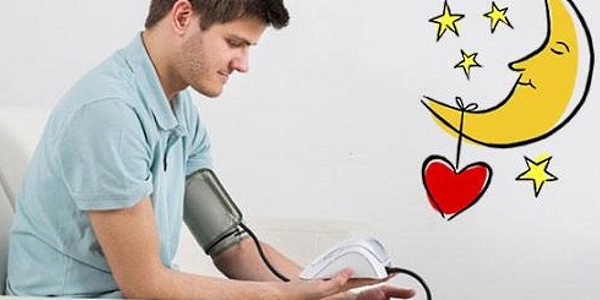
Sometimes the pressure rises in the evening. This may be due to work, in particular, an improperly equipped workplace.
High blood pressure symptoms
| Stage | GARDEN mm. rt. Art. | DBP mm. rt. Art. |
| first or initial stage | 140-149 | 90-99 |
| second stage | 160-179 | 100-109 |
| third stage | 180 and above | 110 and higher |
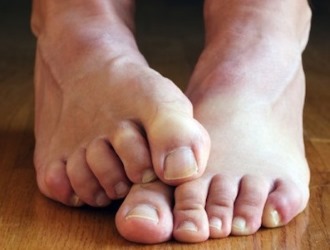 As for chills, it usually appears when blood pressure is above 140/90 or a sharp jump in pressure... An increase in diastolic (lower) pressure up to 120 mm is especially dangerous. rt. Art. and higher. This indicates the development of a dangerous condition that requires immediate medical attention. In particular, the appearance of chills with such blood pressure can be fraught with the onset of a hypertensive crisis, which can lead to the development of a heart attack (stroke or heart attack).
As for chills, it usually appears when blood pressure is above 140/90 or a sharp jump in pressure... An increase in diastolic (lower) pressure up to 120 mm is especially dangerous. rt. Art. and higher. This indicates the development of a dangerous condition that requires immediate medical attention. In particular, the appearance of chills with such blood pressure can be fraught with the onset of a hypertensive crisis, which can lead to the development of a heart attack (stroke or heart attack).
During a crisis, the general condition of the body worsens, and the following symptoms appear:
- dizziness;
- feeling of numbness in the legs, arms;
- visual pathology (the appearance of points before the eyes, clouding, etc.).
Chills often begin at the peak of a hypertensive crisis... Shivering occurs in the face, after which the feeling of chills and cold spreads throughout the body. Vascular spasms, increased heart muscle contraction and increased blood sugar levels are to blame for the appearance of such a reaction.
Associated symptoms
During the chill of the patient a person is in panic: the pupils of the eyes dilate, the skin becomes covered with cold sweat, the heart beats often and hard, then it freezes with fear.
The body temperature at this moment drops: the patient feels severe cold and trembles, and his teeth beat out drumbeats. A person closes in on himself and tries to keep warm. The patient's mental state is on the verge of collapse.
Video: "Panic Attacks"
What to do in case of severe chills and high blood pressure?
If a person feels chills with high blood pressure, should be laid on the bed, covered with a warm blanket, and a warm heating pad should be put at the feet... If this is the first time a patient has such a condition, try to do without medication: calm the person down, advise him to take a hot shower or keep his feet in hot water for about 10 minutes. After this, the patient should be left alone and allowed to rest.
![]() In that case, if a person is a hypertensive with experience, you should make sure that he takes the drugprescribed by a doctor. You can also neutralize the effects of a sharp adrenaline rush with the help of Corvalol.
In that case, if a person is a hypertensive with experience, you should make sure that he takes the drugprescribed by a doctor. You can also neutralize the effects of a sharp adrenaline rush with the help of Corvalol.
Blood pressure should be measured again 20 minutes after taking the medication. If it remains at the same level, it is necessary to call a therapist or an ambulance team.
The window in the room where the patient is located must be openso that fresh air can flow freely into the room. The person needs to be reassured and explained to him that blood pressure does not decrease immediately, but gradually.
This will help the patient relax, calm down, and bounce back more quickly. If everything is done correctly, within an hour, blood pressure will drop by about 30 units.
An excellent way to help get rid of chills and high blood pressure is using apple cider vinegar... The essence of this recipe is as follows: a cloth napkin is moistened with apple cider vinegar and applied to the patient's feet. After that, the pressure begins to decrease rapidly, and the trembling in the body decreases.
People who are familiar with the principles of psychophysical unloading can conduct a relaxation session, i.e. meditate. According to some healers, mudras for high blood pressure help well - special finger combinations that have a healing effect on the body. If you have experience, you can practice breathing with manual energy recharge. It is advisable to do this in a soft comfortable chair, completely relaxing the body.
When you feel better, you can dress for the season and go outside: fresh air will help normalize blood pressure and recover.
Conclusion
In this way, chills are a common companion of high blood pressure... This symptom is not harmless, as it indicates the development of pathological processes in the body, such as a hypertensive crisis. With a regular increase in blood pressure and the appearance of chills, you should consult a doctor in order to prevent the occurrence of hypertension and to prescribe appropriate treatment.
Recently I set out to find out if there can be chills with indigestion? And all because I noticed: the slightest intestinal upset - and it starts to freeze me, although there is no strong temperature. And I learned a lot of new and interesting things about chills without fever.
Chills are caused by spasms of blood vessels that pierce the skin. At the same time, a person feels cold, muscle tremors, spasms of skin muscles, and becomes covered with goose bumps. Very often, the reasons for this condition are associated with an incipient fever - a temperature that can be observed with injuries, infectious diseases... However, chills are often neurotic in nature, when a person experiences stress, fatigue, and sometimes it becomes a consequence of a variety of diseases.
So, the most harmless cause of chills is banal hypothermia. When a person begins to shiver due to emotional excitement, excitement or stress, breathing exercises and sedatives can help: tincture of valerian, motherwort. But there are chills at both low and high pressure. If in the first case a person experiences weakness, discomfort, cannot warm up in any way, then a chill with high pressure already indicates a dangerous disease - hypertension, which can result in a hypertensive crisis or even a stroke. Here you should definitely consult a doctor, since only a properly prescribed one can help. drug treatment... The accompanying chills, headache, insomnia, weakness, loss of appetite are signs of malaria, which a traveler from some exotic country can bring with him. Self-medication in this case is completely excluded, since malaria is life-threatening.
If a woman's chills alternate with hot flashes and intense sweating, while the menstrual cycle is disrupted, then the cause may be climatic syndrome. Ways to alleviate the condition will be recommended by a gynecologist. But a similar condition occurs with hormonal disorders such as hyperthyroidism and diabetes mellitus. An endocrinologist can give an accurate diagnosis and prescribe appropriate treatment.
As for my question about the connection between chills and indigestion, yes, of course, chills are quite natural. Indeed, when an intestinal infection enters the body, with intoxication or with a disorder of the digestive system, inflammatory processwith which the cells fight. Each organism reacts to this differently. Someone may have a fever, someone may freeze, someone feels weak and dizzy, and someone does not experience absolutely any pain syndromes. So to determine the true cause, the general condition and other accompanying symptoms should be considered.
Pressure surges severe chills before pressure rise
Asks: Tatiana, Moscow
Female gender
Age: 79
Chronic diseases: not specified
Hello, Doctor! I started to have pressure surges up to 15080 (on average) from about 2012. But, it is true, they were quite rare. They wrote out KOZAAR-100. It helped. In May 2013, there was an operation (oncology, intestines), which was successful. But since October 2015, horse racing has become more frequent. Moreover, when the pressure starts to rise, I am very shivering, the impression is that everything is constrained inside! Usually it starts from about 16 hours (155-16183-84, pulse 68-80) and in the morning sometimes reaches 170-18078-88 (pulse 65-66). The head is heavy and I really want to sleep, although it is not a fact that I will fall asleep. After 10 am, the pressure starts to decrease slightly. If before March of this year it decreased to 13575, then in March only to 14476 (min). Moreover, if I go to rest (for example, for an hour), then when I get up, the pressure will necessarily be increased. Kapoten doesn't help. Slightly reduces the pressure of Corvalol; more or less removes headache maxidol and cavinton-forte. I feel disgusting when the pressure on different hands is different. If - the same, then even with high rates - much better. Thank you for your answer, it is very important to me! Thanks!
3 answers
Don't forget to rate the doctors' answers, help us improve them by asking additional questions on the topic of this question.
Also, don't forget to thank the doctors.
Hello! Perhaps, over time, you began to "miss" the kosaar. Try replacing it with gizaar forte - this pill, in addition to cozaar, contains a diuretic. If the pressure does not return to normal within 3-4 days, add 10mg lerkamen in the evening.
Oleg 2016-12-05 16:52
Hello! For about a year, they suffer from seizures, and every third day. For two days I feel more or less, on the third (usually in the morning) the pressure rises sharply (often immediately after sleep) (from 150 to 100, to 180 to 120, the pulse is different, up to 100), I feel vascular spasms, a chill the body goes, breathless even at rest and sharply wants to go to the toilet both small and large at the same time, the intestines and urinary tract spasm. Usually I drink Corvaldin and Ampril, after a couple of hours I let them. I have a history of VSD with the presence of sympatho-adrenal crises, sometimes the bronchi ache and I cough, although everything is normal with the bronchi and lungs, I constantly monitor it. After an attack, the pressure can drop to 115 to 75 (my usual 130 to 90), I did ultrasounds of the kidneys, adrenal glands and thyroid gland - everything is normal, general tests are also normal, blood and urine are in order. I have cervical osteochondrosis, I constantly do exercises for it, my neck often hurts. The cardiogram is always normal. I do not drink or smoke for 10 years, the food is normal, no frills and fanaticism, I don’t eat fatty, spicy foods! In the mornings, I do a little exercise every day (except for the days when the attack). These attacks have already been tortured, the doctors really cannot diagnose and do not know what to treat! What should I do?
Site search
If you did not find the information you need among the answers to this question, or your problem is slightly different from the one presented, try asking additional question doctor on the same page, if he is on the topic of the main question. you also can ask a new question, and after a while our doctors will answer it. It's free. You can also search for the information you need in similar questions on this page or through the site search page. We will be very grateful if you recommend us to your friends in social networks.
Medportal site carries out medical consultations in the mode of correspondence with doctors on the site. Here you get answers from real practitioners in their field. At the moment on the site you can get consultation in 43 areas: allergist, venereologist, gastroenterologist, hematologist, geneticist, gynecologist, homeopath, dermatologist, pediatric gynecologist, pediatric surgeon, pediatric endocrinologist, nutritionist, immunologist, infectious disease specialist, cardiologist, cosmetologist, speech therapist, ENT, mammologist, medical lawyer, narcologist, neuropathologist, neurosurgeon, nephrologist, oncologist, oncourologist, orthopedist-traumatologist, ophthalmologist, pediatrician, plastic surgeon, proctologist, psychiatrist, psychologist, pulmonologist, sexologist-andrologist, dentist, urologist, pharmacist, phytotherapist, phlebologist, surgeon, endocrinologist.
We answer 98.06% of questions.
Stay with us and be healthy!
